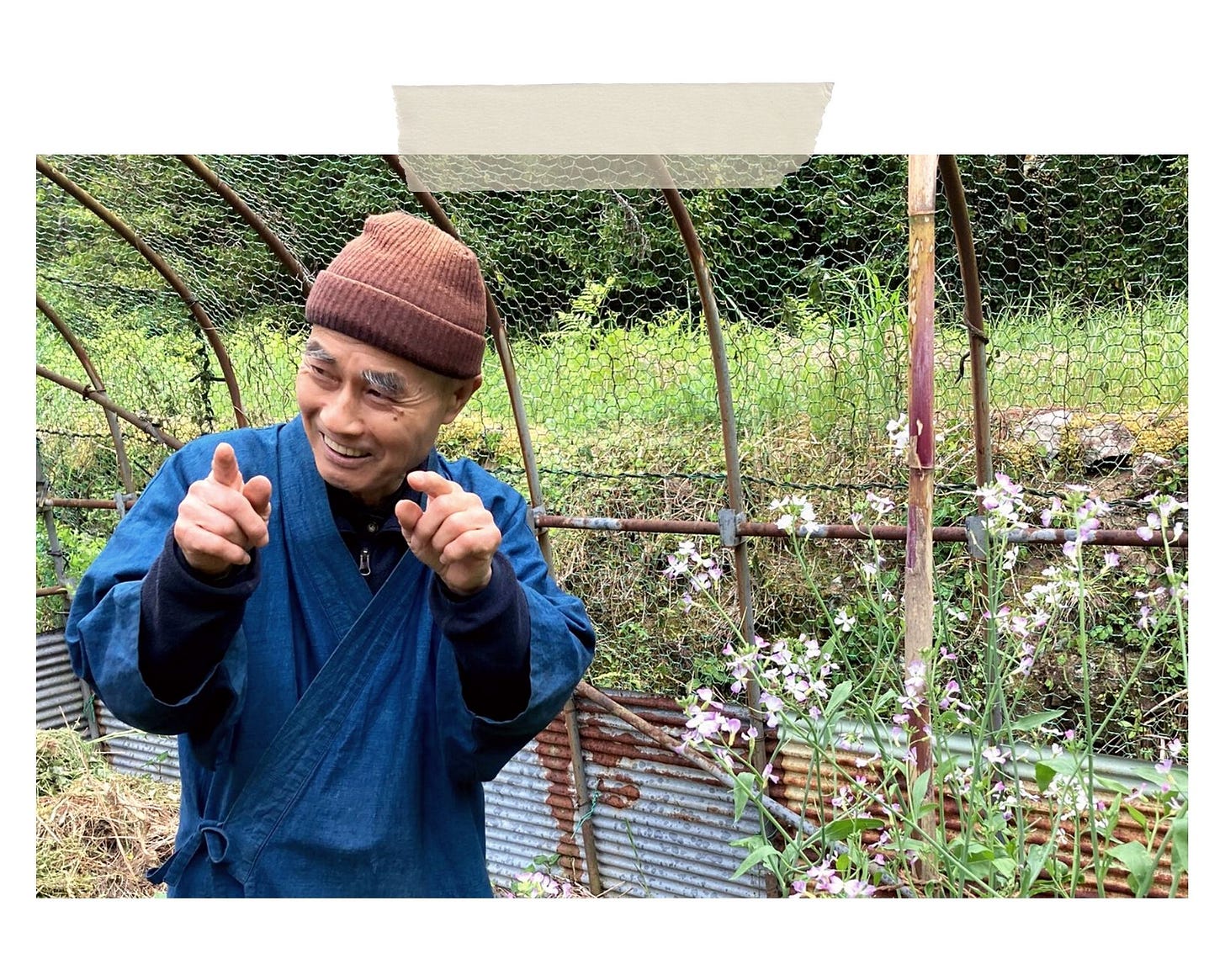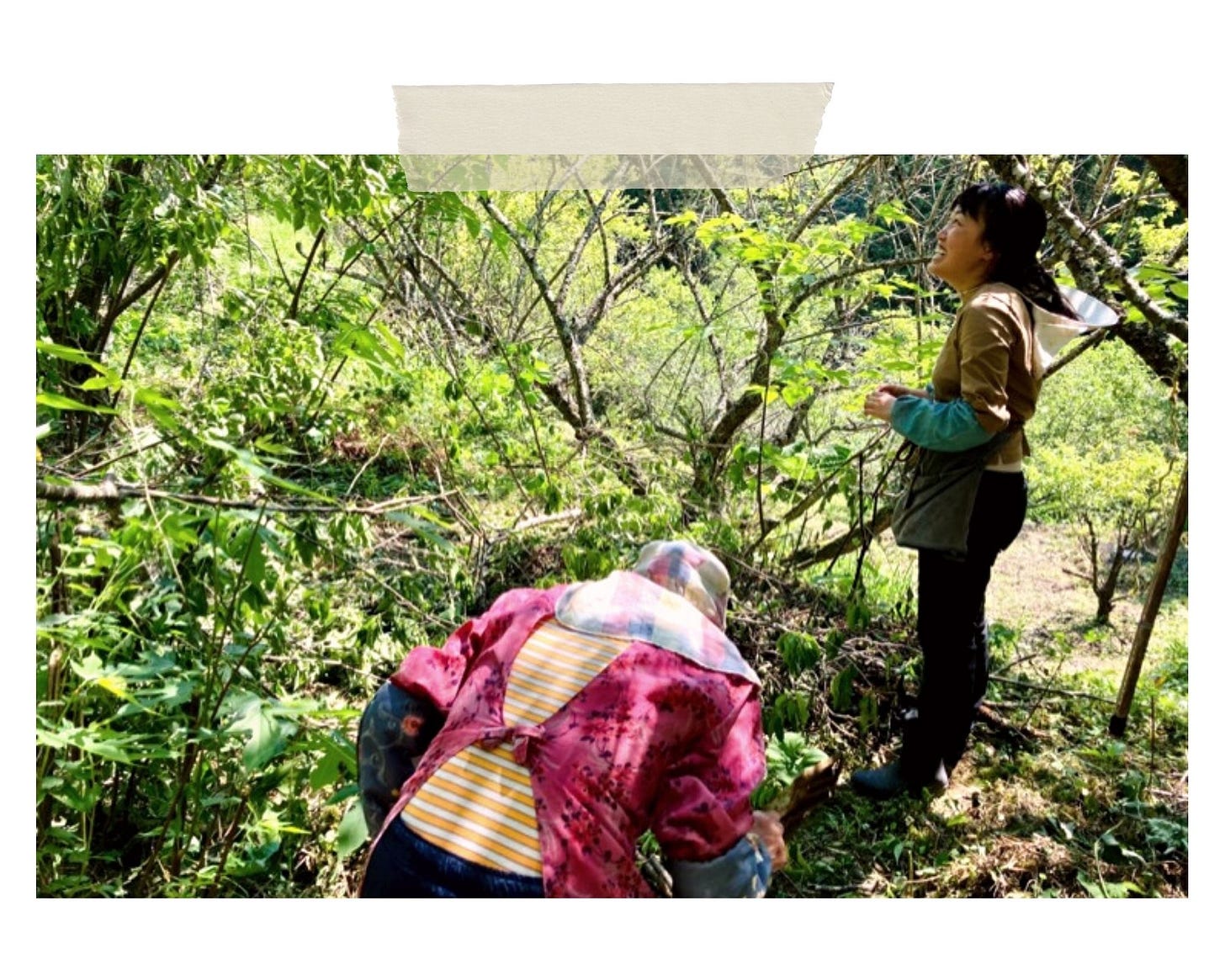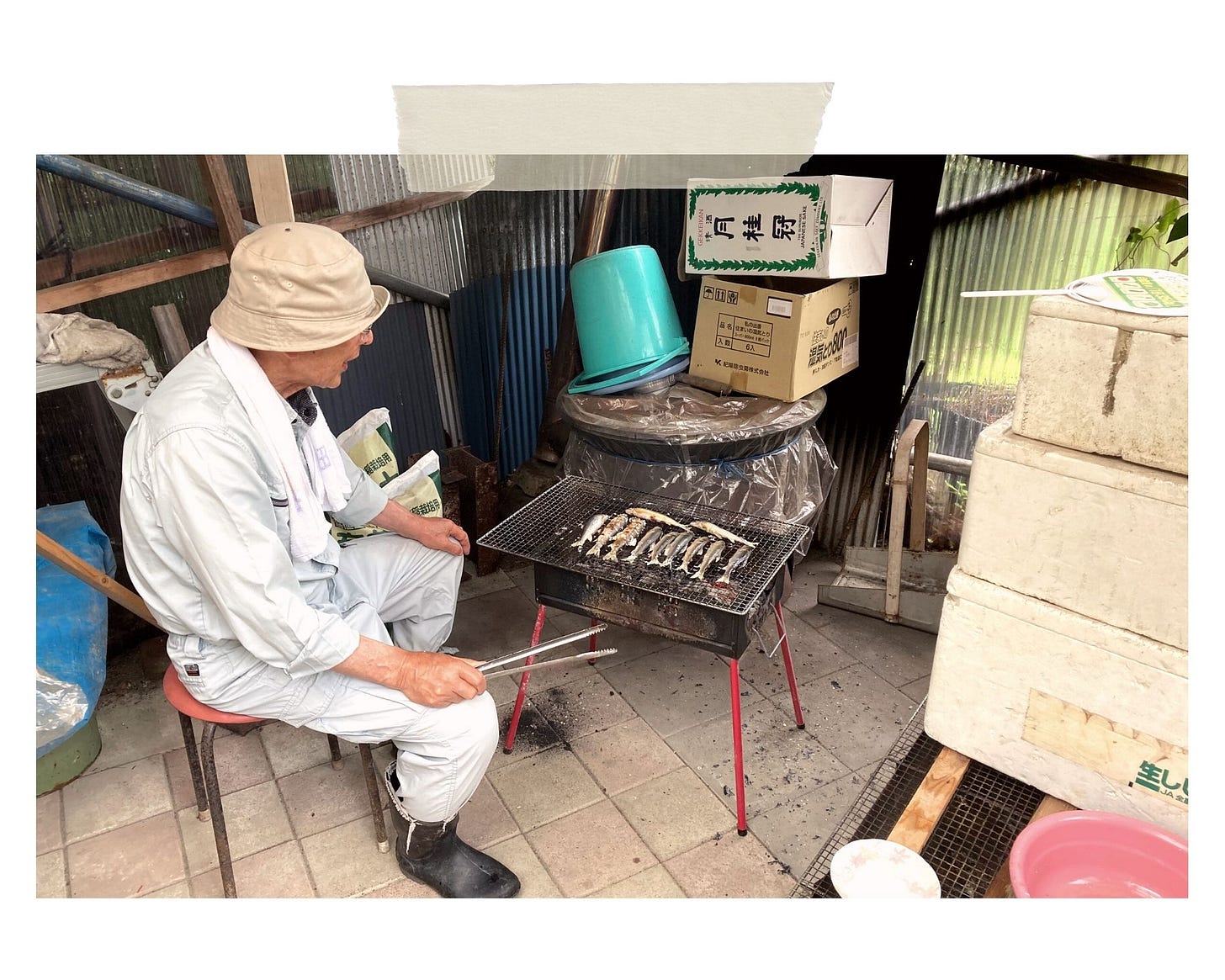a divide of young and old
spend time with people not your age
Hello reader, thanks for being here! I’m Kana and this is Tending Gardens, which you can read about here. If you like it and want more like it in your inbox, consider subscribing.
a village of elderly
A couple of weeks ago I wrote about my roommate: an anthropologist doing fieldwork in Kamikatsu. She’s observing life here through the themes of depopulation, ageing society, rural revitalization, and young people who chose to leave cities and to the countryside.
I live in Kamikatsu, a small village where over 50% of the population of 1,500 people is over 65 years old. It’s a community of elderly people, where 60 isn’t even close to being considered “old”. At 80 there are many healthy people who continue to work on their farms and sell their vegetables at the local farmers market.
We recently talked about how there are two stories running in parallel in Kamikatsu: one, a story of success where young people are working, starting businesses, and finding creative ways to reimagine space/place; two, a rapidly ageing population coupled with increasing abandoned home (known as ‘akia’) and lack attention for the elderly.
I, like my (young) friends in Kamikatsu, are the people the media tend to focus on because stories of revitalization are shiny. I think these stories have their place to inspire others but my roommate is much more interested in the latter, so the bulk of her time has been spent creating a network of elderly people.
I’ve been joining her for some of the “interviews” with the elderly and I’m really cherishing these moments (air quotes on “interview” because instead of a traditional interview where a set of questions and subsequent responses dictates the conversation, she usually starts with just one very general question and sees where hours of conversations end up).
It’s not a systematic approach (the transcribing seems like a daunting task) but as a listener, it’s fascinating to hear different stories emerge organically. We also spend time doing shared activities like farming together or drinking tea together.
widening perspective
Having settled into a much more simple and rural life, every time I think of cities I can’t help but very quickly shake my head ‘no’. In spite of the hardships of the pandemic, I think we’ve equally learned the gifts of space and solitude having retreated into our homes. In a similar way, I’ve also distanced myself from the flux of people. I posted a video on Instagram recently of my “noisy neighbours” who were actually just frogs croaking in the middle of the night. I live in a place where silence, other than nature, blankets the night and stars can be seen every night the sky is clear.
Despite feeling a bit conflicted at the prospect of living in a city now, I always loved urban places for their diversity. Widening your perspective is easy when you’re surrounded by a different culture, language, ideas, art… but in the countryside, I was worried my perspective would stop evolving in the same way because I’d find myself in a small-town mentality where everyone thinks the same.
It wasn’t until I spent time with the elderly that I realized much of my life I’ve mostly people who are, at most, 10 years younger or older than me. A 20-year margin isn’t very wide but I found my perspective through diversity in ways that weren’t from age.
Now I have this unique chance in Kamikatsu to connect with people who are somewhat culturally similar but hold a unique perspective through their rich lived experiences. The elderly now grew up in a time when society’s values and reality were different.
How did they play as kids? How did they view their role in their families and communities? How do they perceive ‘home’? What do they think of young people?
I think it’s easy to forget how older people have contributed to society and the economy because it’s easier to focus on the societal pressures that come with an ageing population.
Spending time with elders has really taught me is that it’s important to foster more social inter-generational interaction. Again, because it changes us. It widens our perspective, gets us to think about different ways of living—connecting narratives with the past and exploring realities of the future.
We need both young and old people for a community to thrive. We need the two stories to be less running in parallel and more of a twisty and intertwined DNA.
Wishing you all a wonderful week ahead.
Take care,
Kana
I’d love for you to think of me as your penpal—sharing a note from a tiny village in Japan. With Tending Gardens, I want to bring you a small joy in the form of a newsletter. If you like it and want more like it in your inbox, consider subscribing.








Nice story and great newsletter, Kana Chan. As a writer and teacher, I get to meet all sorts of people, and the over-60 are consistently open and talkative. Sometimes I get the impression that once they hit 60-65, many Japanese lose their school- and job-induced inhibitions and openly share their thoughts without fear.
This is such a great reflection! If the elderly folks you're spending time with and learning from are okay with sharing their stories with a wider audience, it would be great to learn more about their perspectives on life! Since you asked, "How did they play as kids? How did they view their role in their families and communities? How do they perceive ‘home’? What do they think of young people?" I'd love to learn the answers to those questions and more!!